(RNS) — Evangelicals were the bedrock of Trump’s return to the White House, with some 80% of evangelical voters supporting him. For some Tennessee pastors, that was mostly about the economy — and they hope Trump will lead to lower gas and food prices, but not a revival of Christian power. And they worry about post-election America, which remains polarized.
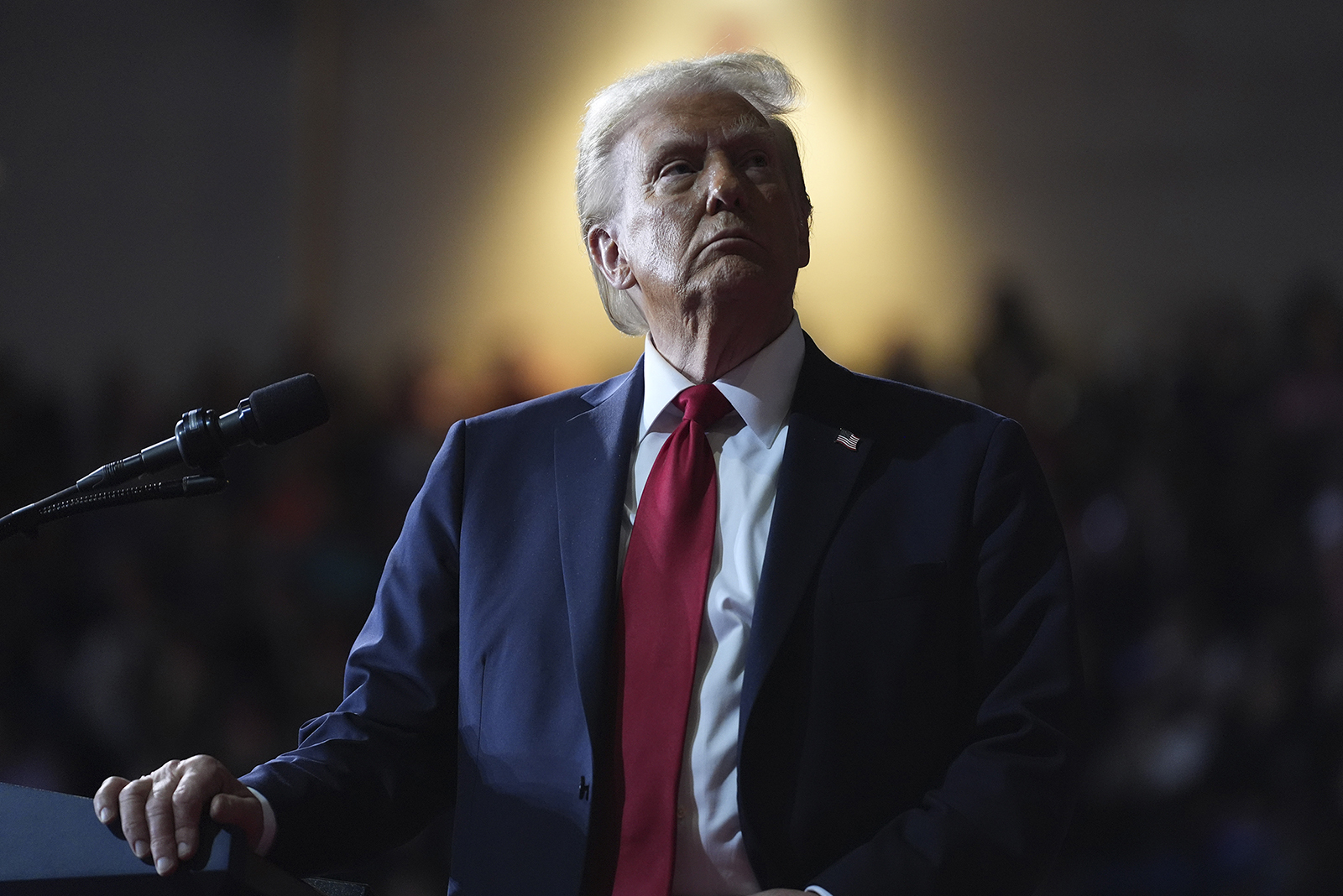
Republican presidential nominee former President Donald Trump watches a video screen at a campaign rally at the Salem Civic Center, Nov. 2, 2024, in Salem, Va.
(AP Photo/Evan Vucci)
Bob Smietana
November 15, 2024
MURFREESBORO, Tenn. (RNS) — On the Sunday after the recent presidential election (Nov. 10), Allen Jackson got up to recognize the many veterans in the congregation and to give thanks for the election results, to applause from many in the white evangelical megachurch’s sanctuary.
But Jackson, 67, the church’s longtime pastor, known for his conservative values and outspoken support for Israel, characterized the election’s outcome as more a reprieve than a victory. “I really did feel like the Lord showed us mercy, when, in truth, we deserve judgment,” said Jackson.
Much work is still to be done in restoring what Jackson called “a biblical worldview” to the nation’s culture, he said, and he made clear that his congregants could not depend on elected officials to do that work for them. “We will have to have more courage than the people that you voted for,” he added.
While Donald Trump’s faith advisers were elated that voters returned him to the White House, some evangelical pastors in Tennessee were more muted in the days after the election. Like their congregants and voters around the nation, who said in exit polls that the economy determined their vote more than any other issue, the pastors RNS interviewed were focused more on the cost of day-to-day items like gas and food than a revival of Christian power.
RELATED: What evangelical Christian leaders say they want from a second Trump term
Brownsville, Tennessee, a 40-minute drive east of Memphis, is the seat of Haywood County, one of three counties in the state that went for Harris. But unlike Harris’ sweeps in the metro areas of Memphis and Nashville, the vice president beat Trump by just 25 votes in Haywood.
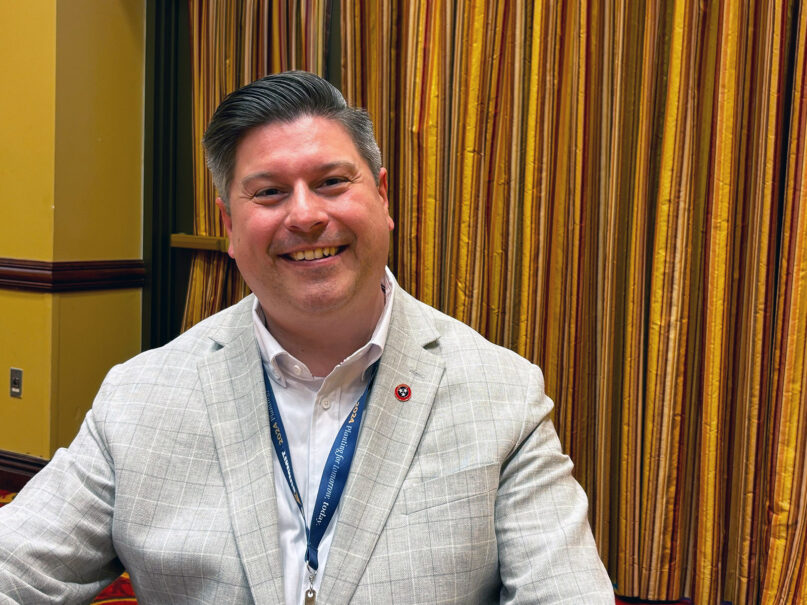
Pastor Ben Cowell. (RNS photo/Bob Smietana)
Ben Cowell, the 42-year-old pastor of Brownsville Baptist Church, said he remains concerned about polarization in the wake of another election that left half of the country elated and half despondent.
Much of that he blames on social media echo chambers that pit Americans against each other. “I would joyfully welcome a mass crash of multiple servers, where X is brought down and Facebook is brought down, and all of these social networking sites,” he said. “I think people have now grown full jobs out of making people angry at and mistrusting people who hold different ideas.”
While glad about Trump’s win mostly for economic reasons — “I’d like to see milk not be $6 a gallon,” he said, “or gas, $4 a gallon” — he worries that rather than listening to experts, Americans are more likely to be influenced by social media influencers who have no real knowledge about the subjects they talk about.
“People wondered why we’re more divided than we’ve ever been,” he said. “Well, we did it to ourselves.”
Mike Waddy, pastor of First Baptist Church in tiny Maury City, Tennessee, half an hour north of Cowell’s church, also said that most of his people voted based on economic rather than ideological concerns. Because of inflation, Waddy said that retired folks and those on a fixed income were more likely to turn to the local food pantry for help in recent years. Those folks had been OK under recent presidents but in the last three years have struggled with the price of food and gas.
“Our people watched some of their friends fall under their ability to make it,” he said. “Food pantries like ours wound up heavily supplementing some people’s ability to eat.” In Maury City’s Crockett County, Trump took nearly 80% of the vote.
But Waddy, whose church shares a building with a Hispanic congregation, said issues such as immigration have not been a focus in the community, where Spanish is spoken in about a third of homes, according to U.S. Census data. The pastor said that Trump’s promise of mass deportations has not come up but that if it comes to pass, the town would be ripped apart and close friendships would be destroyed.
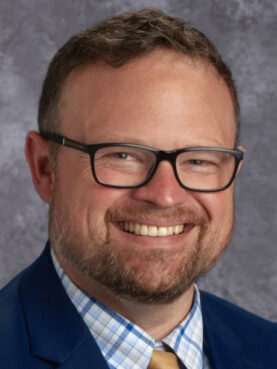
Pastor Cliff Marion. (Courtesy photo)
There would also be economic consequences, he said. “With 30-something percent of our population being Hispanic, if they were all to be gone, you can imagine what that would do to our economy.”
First Baptist Church in Covington, Tennessee, a small town 12 miles from the Mississippi River, has both Democrats and Republicans in its congregation, and its pastor, Cliff Marion, didn’t address the election on Sunday, feeling it was time to move on. He calls unifying the country “the million-dollar question,” adding, “I don’t think either party has it figured out because it seems like each party has different views of the kind of America they want.”
Marion said he has avoided falling into partisan divides so far but said political activists have made inroads into churches and seem intent on making disciples to their causes, rather than followers of Jesus.
“Charlie Kirk and Tucker Carlson, they’re the greatest disciplers in the Southern Baptist Convention,” said the pastor. “They make better disciples than Lifeway (the Southern Baptist Convention’s publishing arm) does, because all our people do is turn them on all day long.”
In response, he said, he has tried to remind the 500 or people who attend services at First Baptist that political opponents are not enemies.
“We will not be a church that curses the darkness,” he said. “We will go into the darkness and light more candles.”
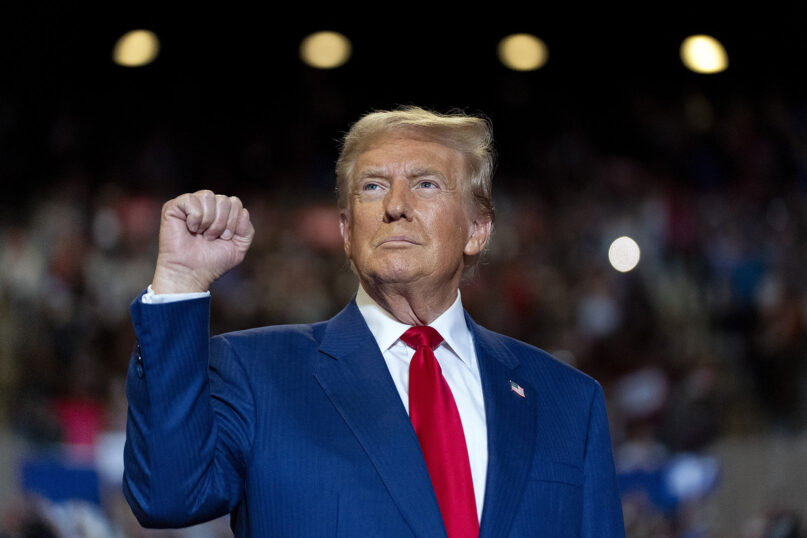
Republican presidential nominee former President Donald Trump pumps his fist as he arrives to speak at a campaign event at Nassau Coliseum, Sept.18, 2024, in Uniondale, N.Y. (AP Photo/Alex Brandon)
Erik Reed, pastor of Journey Church in Lebanon, Tennessee, east of Nashville, where Trump beat Harris by a ratio of 2-to-1, was more enthusiastic about a second Trump term. Reed hopes to see reforms in the nation’s educational system, a better economy and an end to U.S. involvement in overseas wars.
He did not endorse a candidate before the election or talk about it the Sunday after, but earlier this year he did run an all-day seminar on faith and politics, where he laid out some reasons why Christians might support Trump — and why some could not.
Reed suspects people have grown tired of the changes of modern life, of dealing with pronouns and issues of gender. They also worried about the cost of living. “At the end of the day, I think what people were voting right now is a return to some common sense. That’s not a Christian or non-Christian thing,” he said. “That’s just people trying to live and survive.”
That strikes Jackson, the pastor whose World Outreach church and its sprawling campus in Murfreesboro claims 15,000 members, as a waste of an opportunity. If the election was a reprieve from judgment, he believes America still faces judgment for defying God’s boundaries on issues such as marriage, abortion and gender.
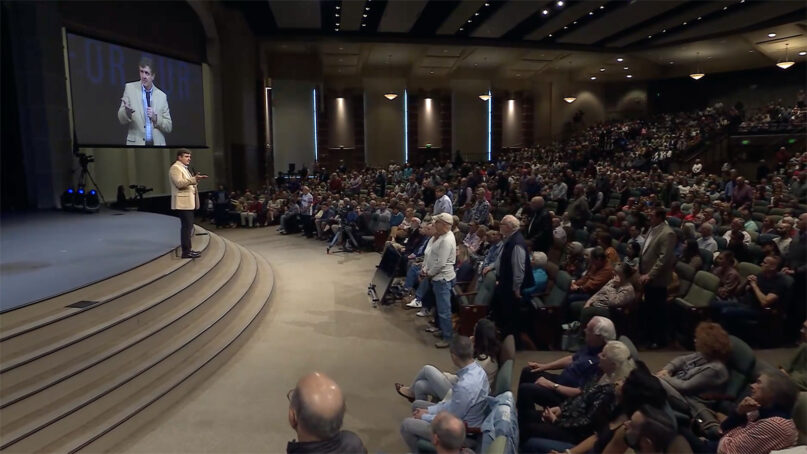
Pastor Allen Jackson, left, speaks at World Outreach Church in Murfreesboro, Tenn. (Video screen grab)
But he doesn’t look to Washington to save the nation. “I don’t think the problems that we face as a people were fundamentally political,” he said. “So I wasn’t looking for a politician or an election to fix us.”
Instead, he said, “I think the question is, is there still enough residual biblical worldview in the character of America to shape our future? If there is, I think that’s a better future.”
No comments:
Post a Comment